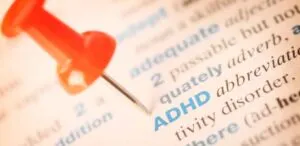Post-Traumatic Stress Disorder:
PTSD is a psychiatric disorder that may develop in people who may have experienced or witnessed a traumatic incident. The incident could be dangerous, fatal, shocking, or extremely frightening. Long after the traumatic event has passed, people with Post-Traumatic Stress Disorder(PTSD) continue to face intense, disturbing thoughts and feelings related to that experience.
Flashbacks or nightmares may cause them to re-experience the incident, and they may feel sadness, fear, or frustration. Persons who have PTSD may avoid people or circumstances that trigger their painful memories, and they may have strong negative responses to seemingly unimportant things like loud noise.
Following are a few examples of PTSD-causing events:
- Rape or sexual assault
- Unexpected loss or death of a loved one
- Terrorist attack
- Natural disasters, such as a tornado, hurricanes, fires, or floods
- Physical assault
- Witness a person being shot or stabbed
- Accident
- Military combat
- Hospitalization
- Bullying

What are the Symptoms of PTSD?
PTSD can be categorized into the following four groups. The degree of a certain symptom’s severity might change.
Intrusion:
Persistent, unpleasant thoughts, disturbing nightmares, or flashbacks to the traumatic incident are signs of intrusive thoughts. People who experience flashbacks sometimes feel as though they are seeing or reliving the painful event.
Avoiding:
Avoiding reminders of the traumatic incident may include staying away from the person, places, things, activities, and situations that can bring back those terrible memories. People could make an effort to ignore or avoid thinking about the terrible experience. They can be reluctant to discuss what occurred or how they feel about it.
Alterations in cognition and mood:
Changes in cognition and mood include the inability to recall important details of the traumatic event, negative thoughts leading to distorted beliefs about oneself or others, thoughts about the cause or consequences of that horrible event leading to placing blame on oneself or others, less interest in once-enjoyed activities, and being unable to experience positive emotions.
Alterations in arousal and reactivity:
Changes in arousal and reactivity include irritability and angry outbursts, reckless or self-destructive behavior, being highly aware of one’s surroundings, being quickly startled, having trouble focusing, or having trouble sleeping.
Are some people prone to PTSD more than others?
It is difficult to predict who would experience PTSD after a severe incident. However, Post-Traumatic Stress Disorder(PTSD) is more common in those who have experienced:
- Certain traumas, especially those brought back on by sexual assault or military combat
- Events that occurred injury
- Lack of after-trauma support from family members
- Repeated, intense, or prolonged trauma
- History of anxiety or depression (even before the traumatic event)
- Strong initial reaction to the traumatic event

What is the Treatment for Post-Traumatic Stress Disorder?
It is important to remember that not everyone who suffers trauma goes on to develop post-traumatic stress disorder (PTSD), and not everyone with PTSD needs psychological treatment. For some people, symptoms of PTSD gradually disappear over time or get better. Others improve with the help of their support network (family or friends). However, many PTSD sufferers require medical treatment to overcome their psychological distress, which can be severe and impairing.
The most effective treatment for PTSD is a combination of the following.
Cognitive Behavioral therapy:
One category of psychotherapy, called cognitive behavior therapy (CBT), is very effective. Following are the types of CBT used to treat PTSD.
- The goal of cognitive processing therapy is to change trauma-related painful negative feelings and beliefs. Therapists assist patients in facing such upsetting feelings and experiences.
- Prolonged exposure therapy uses repeated, detailed exposures of the trauma or periodic exposures to trigger in a safe and controlled environment to help a person face their fear, control it gradually, and learn to cope.
- Through exposure to lower levels of stress, stress inoculation therapy seeks to provide the patient with the coping mechanisms required to successfully defend against stressful triggers.
- Group therapy invites survivors of similar traumatic events to share their experiences and reactions in a comfortable and non-judgmental setting.
- Family therapy may also help because the behavior and distress of the person with PTSD can affect the entire family.
Medication:
PTSD symptoms can be managed with the help of medication. Additionally, medicine enables many patients to engage in psychotherapy more productively. Some medications can help your body produce more chemicals that regulate stress and emotions. They can be divided into two categories:
- Selective serotonin reuptake inhibitors (also called SSRIs).
- Serotonin-norepinephrine reuptake inhibitors (also called SNRIs).
Other medications may be used to treat PTSD-related nightmares and sleep issues, as well as to reduce anxiety and physical discomfort.
Eye movement desensitization and reprocessing (EMDR):
Structured therapy encourages the patient to pay attention to the traumatic memory for a brief period of time while also undergoing dual stimulation(usually eye movements), which is associated with a reduction in the emotional intensity and clarity of the painful recollections. In other words, you focus on certain sounds or motions introduced by the therapist while you think about the event. Over time, it seeks to lessen how unpleasant the experience was.
Other treatments: There is also an increase in the use of complementary and alternative therapies to assist those with PTSD. In comparison to psychotherapy, these methods offer treatment outside of the typical psychiatrist’s office and could include less talking and disclosure.

Novus Beginning Psychiatry: Your Path to Health and Wellness Starts Here!
We understand that navigating the complexities of mental health can feel overwhelming, but you don’t have to face it alone. At Novus Beginning Psychiatry, we’re here to support you every step of the way. Whether you’re seeking therapy, medication, or a combination of both, our compassionate professionals are dedicated to helping you find the path to a happier, healthier life.
Our highly skilled psychiatrists are experienced in a wide range of mental health conditions, including anxiety, depression, bipolar disorder, OCD, PTSD, ADHD, autism, and more. We offer evidence-based therapies that have been proven effective in helping individuals overcome their challenges. From cognitive-behavioral therapy (CBT) to couples/family therapy, we utilize the most up-to-date techniques to empower you on your healing journey.
We also recognize that medication is vital in managing certain psychological health conditions. Our team includes Dr. Nibras, who is a board-certified psychiatrist well-versed in medication management. He works closely with you to develop a comprehensive treatment plan, as we believe in the power of personalized care.
So, take the first step towards a brighter future. Contact us today to schedule an appointment. Our friendly staff is ready to assist you in finding a convenient time to meet with our dedicated professionals. Call (832)856-4718 and let us help you take charge of your mental well-being.
Medication Management For Psychiatric Wellness
At Novus Beginning Psychiatry, we’re dedicated to helping you unlock the power of effective medication management. Our team of psychiatrists has years of experience and understands the importance of finding the right balance for your mental health journey. We offer personalized and compassionate care, creating medication plans that are tailored to your unique needs. Our understanding of psychopharmacology allows us to provide the most advanced and evidence-based treatments available.
Our goal is to help you by providing the right medications to enhance your therapy outcomes, reduce your symptoms, and improve your overall well-being. We want to be your trusted partner on the path to a brighter future. Please don’t hesitate to contact us at Novus Beginning Psychiatry to experience the transformative effects of our comprehensive medication management approach.
Visit us
Come and visit us at one of our locations in person or meet us via telepsychiatry/online!
We’re here to help in Texas, ready to meet you in person. If you’re unable to make it in person, don’t worry, we’re also available online in Texas, so you can meet us easily from the comfort of your own home. Whether you prefer to see us face-to-face or connect with us online, we’re here to assist you every step of the way.
Address in Sugar Land
120 Eldridge Rd Suite D, Sugar Land, TX 77478
Address in Katy
23410 Grand Reserve Drive, Ste. 401 & 402 Katy, Texas 77494



